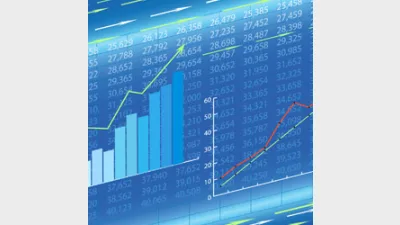Chinese inflation under control, says HSBC



Headline inflation in China will fall to 2.9 per cent in 2012, leaving Beijing with plenty of room to reflate growth and avoid a hard landing, according to HSBC.
The year-on-year headline consumer price index (CPI) in China for 2011 was 5.4 per cent - well above the Government's official annual target of 4 per cent.
December recorded the lowest year-on-year CPI figure for 2011 with 4.1 per cent - down from November's 4.2 per cent. The decline in headline inflation is partly due to a sharp decline in the producer price index, which fell to 1.7 per cent year-on-year in December from 2.7 per cent in November. Non-food price growth also eased from 2.2 per cent year-on-year in November to 1.9 per cent in December.
However, food price inflation rose from 8.8 per cent year-on-year in November to 9.1 per cent in December due to a seasonal rebound. Despite this, the most significant source of food price inflation in China - pork prices - eased to 21.3 per cent year-on-year in December from 26.5 per cent in November.
The Chinese New Year (23 January) is also likely to see a seasonal spike in headline inflation, according to HSBC.
"Looking into 2012, inflation should no longer be a key policy concern, due to normalising credit expansion, a moderating GDP growth rate, softening global commodities prices, and the continued delivery of supply-side measures designed to stabilise food prices," said HSBC.
HSBC also expects Beijing to make 150 basis points of reserve ratio cuts in the next six months in an effort to boost domestic demand, with the next cut likely to arrive within weeks.
Recommended for you
The top five licensees are demonstrating a “strong recovery” from losses in the first half of the year, and the gap is narrowing between their respective adviser numbers.
With many advisers preparing to retire or sell up, business advisory firm Business Health believes advisers need to take a proactive approach to informing their clients of succession plans.
Retirement commentators have flagged that almost a third of Australians over 50 are unprepared for the longevity of retirement and are falling behind APAC peers in their preparations and advice engagement.
As private markets continue to garner investor interest, Netwealth’s series of private market reports have revealed how much advisers and wealth managers are allocating, as well as a growing attraction to evergreen funds.











